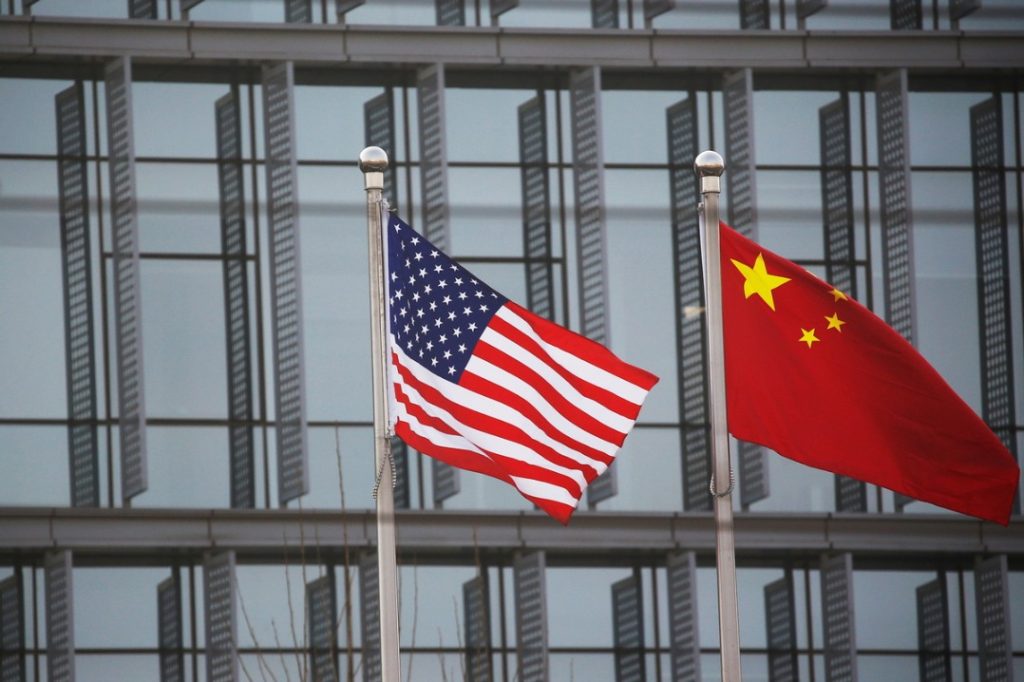Listen to the article
China Strongly Opposes U.S. Trade Probe Ahead of High-Level Talks
China has issued a strong rebuke against what it describes as “false accusations” by the United States following the announcement of a new tariff inquiry by the U.S. Trade Representative Office. The investigation aims to assess China’s compliance with the 2020 “Phase One” trade agreement, a development that threatens to further strain already tense economic relations between the world’s two largest economies.
In a statement released by the Chinese Embassy in Washington on Friday, a spokesperson asserted that China, “as a major country that takes its responsibilities seriously,” has “scrupulously fulfilled its obligations” under the Phase One Economic and Trade Agreement. According to the statement, these obligations encompass measures to strengthen intellectual property protection, increase imports from the United States, and expand market access for foreign businesses.
The timing of the USTR’s probe has raised eyebrows in diplomatic circles, coming just one day before high-ranking trade officials from both nations were scheduled to meet in Kuala Lumpur, Malaysia. This meeting represents the fifth round of trade negotiations between the two economic powerhouses since May, highlighting the ongoing efforts to manage their complex economic relationship despite growing tensions.
China’s response referenced a policy document titled “China’s Position on Some Issues Concerning China-US Economic and Trade Relations,” published by the State Council Information Office in April. The document details how China worked to implement the agreement despite “multiple adverse factors,” including the COVID-19 pandemic, global supply chain disruptions, and economic downturns that have affected international trade.
The embassy spokesperson pointedly noted that the U.S. had previously “issued several statements affirming the effectiveness” of China’s compliance efforts. This acknowledgment stands in stark contrast to the new investigation, which Beijing views as contradictory to previous American assessments.
Since the signing of the Phase One deal in January 2020, Chinese officials claim the United States has “systematically escalated economic and other forms of pressure against China.” This includes implementing various restrictive measures such as export controls and investment restrictions that, according to the spokesperson, “repudiate the spirit of the Agreement.”
The statement further alleges that Washington has simultaneously promoted “false narratives” on sensitive issues including human rights, Hong Kong, Taiwan, Xinjiang, and the pandemic. These actions, the embassy contends, have “done serious damage to China-US ties as well as economic and trade relations,” disrupting normal commercial activities and “significantly undermining the conditions necessary for the implementation of the Agreement.”
The Phase One deal, signed during the Trump administration, required China to increase purchases of American goods by $200 billion above 2017 levels over two years. However, according to U.S. data, China fell short of these commitments by approximately 40 percent, a shortfall that Chinese officials attribute to external economic factors rather than a lack of good faith.
Chinese authorities urged the United States to “promptly correct its wrong practices” and adhere to “the important consensuses” reached during phone calls between President Xi Jinping and President Joe Biden. The embassy called for Washington to “protect the hard-won outcomes of consultations” and continue using established bilateral economic consultation mechanisms to address concerns through “dialogues on the basis of mutual respect and equal-footed consultation.”
Market analysts suggest this diplomatic tension could impact global markets, particularly in sectors where U.S.-China trade is most concentrated, including technology, agriculture, and manufacturing. The uncertainty created by these investigations often leads to volatility in commodity prices and stock valuations for companies with significant exposure to bilateral trade.
As both nations prepare for their scheduled talks in Malaysia, observers will be watching closely to see whether this new investigation derails progress or whether pragmatism will prevail in the complex economic relationship between these global superpowers.
Fact Checker
Verify the accuracy of this article using The Disinformation Commission analysis and real-time sources.




8 Comments
The US probe seems aimed at pressuring China ahead of the talks, but China’s strong rebuke suggests they won’t back down easily. This could make for a tense negotiating environment, though hopefully pragmatism will win out in the end.
Interesting development in the ongoing US-China trade dynamic. It’s not surprising to see China dismiss these claims as ‘false accusations’ – they will likely want to maintain a cooperative tone ahead of the high-level talks.
The timing of this USTR investigation is certainly curious, coming just before the high-level talks. It feels like both the US and China are jockeying for leverage ahead of the negotiations. Hopefully cooler heads can prevail and they can find common ground.
China’s robust defense of its trade obligations suggests it sees the USTR probe as a negotiating tactic rather than a genuine inquiry. It will be important to see how the talks in Malaysia unfold and whether any tangible progress can be made.
This dispute over China’s trade compliance could complicate the upcoming talks. Both sides will want to appear firm, but ultimately some compromise will be needed to ease tensions. It will be interesting to see how the negotiations play out.
Agreed, compromise will be key. Neither side can afford a full-blown trade war at this point.
It’s not surprising to see China reject these ‘false accusations’ given the high stakes involved. Both sides will want to project strength, but ultimately they need to find a way to de-escalate tensions and make progress on the trade front.
This investigation into China’s compliance with the Phase One trade deal seems like political posturing ahead of the upcoming negotiations. Both sides will likely want to project strength, but ultimately compromises will be needed to keep the fragile truce.